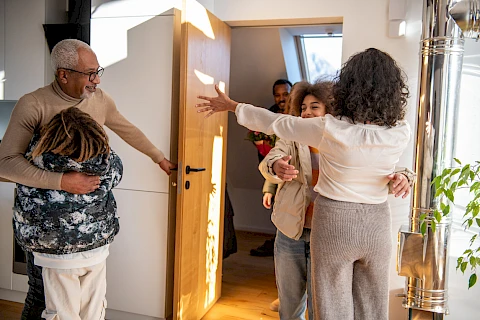
Social interactions are paramount to senior well-being, promoting emotional stability, cognitive function, and physical health. However, many older adults face barriers that can lead to feelings of isolation and loneliness in their later years. Implementing strategies that foster social wellness in senior care can make a significant difference in their quality of life.
Social Engagement and Senior Well-Being
Strong interactions are integral to overall wellness in aging adults. Seniors with active social lives tend to have a reduced risk of chronic diseases like heart disease and diabetes. Social interactions can also improve immune function, making seniors less susceptible to illnesses.
Maintaining social connections is also beneficial for mental health. Seniors who engage socially are less likely to experience depression, loneliness, and anxiety. Furthermore, social activities can enhance cognitive function, keeping the mind sharp and active.
Emotionally, social connections give older adults a sense of belonging and purpose. When seniors feel connected, their happiness and life satisfaction increase. These connections help seniors develop a positive outlook on life.
Encouraging Social Engagement Among Older Adults
Caregivers and family members can implement several effective strategies to encourage social engagement among seniors.
Strengthening Family Connections
Encouraging regular visits from family members provides significant emotional support and helps seniors thrive. Virtual connections like video calls and social media can bridge the gap when physical visits are challenging. These interactions will ensure seniors remain connected to their loved ones and feel supported despite physical distances.
Engaging With the Local Community
Community involvement often brings opportunities for social interactions. Local senior centers and clubs usually offer various activities tailored for seniors, providing a platform to connect with peers, share interests, and form lasting friendships. Volunteering opportunities are also a great way to meet new people.
Participating in Group Activities
Group activities are an excellent way to build social interaction. Exercise classes such as yoga or tai chi are good for physical health and provide a setting for socializing. Just remember to consult a doctor before letting seniors start a new exercise routine. Hobby groups, such as book clubs or gardening clubs, can also be a fun way for seniors to meet others with similar interests.
Facilitating One-on-One Interactions
Seniors who may find group settings overwhelming or intimidating can benefit from one-on-one interactions for a more personalized and comfortable social experience. Companion care services can provide constant social interaction with a dedicated caregiver. Encouraging friendships with neighbors can also offer regular, low-pressure social opportunities.
Overcoming Barriers to Social Engagement
Mobility issues can make social engagement challenging. Using transportation services can help seniors attend social events and activities. For those who prefer to stay at home, organizing home-based social activities can ensure they still connect with others.
Coordinating with healthcare providers can help manage any health-related barriers. Adapting activities to meet individual needs, such as offering seated exercise classes or quieter social gatherings, can make all the difference. Gradually introducing seniors to social settings can also help ease their concerns.
Senior Helpers Tulsa Provides Companionship for Seniors and More
Social wellness is vital for seniors, impacting their physical, mental, and emotional health. Incorporating regular social interactions and engaging activities into their routine can significantly enhance their quality of life.
If you need help caring for a senior loved one in Tulsa, McAlester, Broken Arrow, and Sand Springs, Senior Helpers Tulsa can help. We provide personalized in-home care, helping seniors stay healthy, safe, and socially connected in their golden years. Contact us for more information!